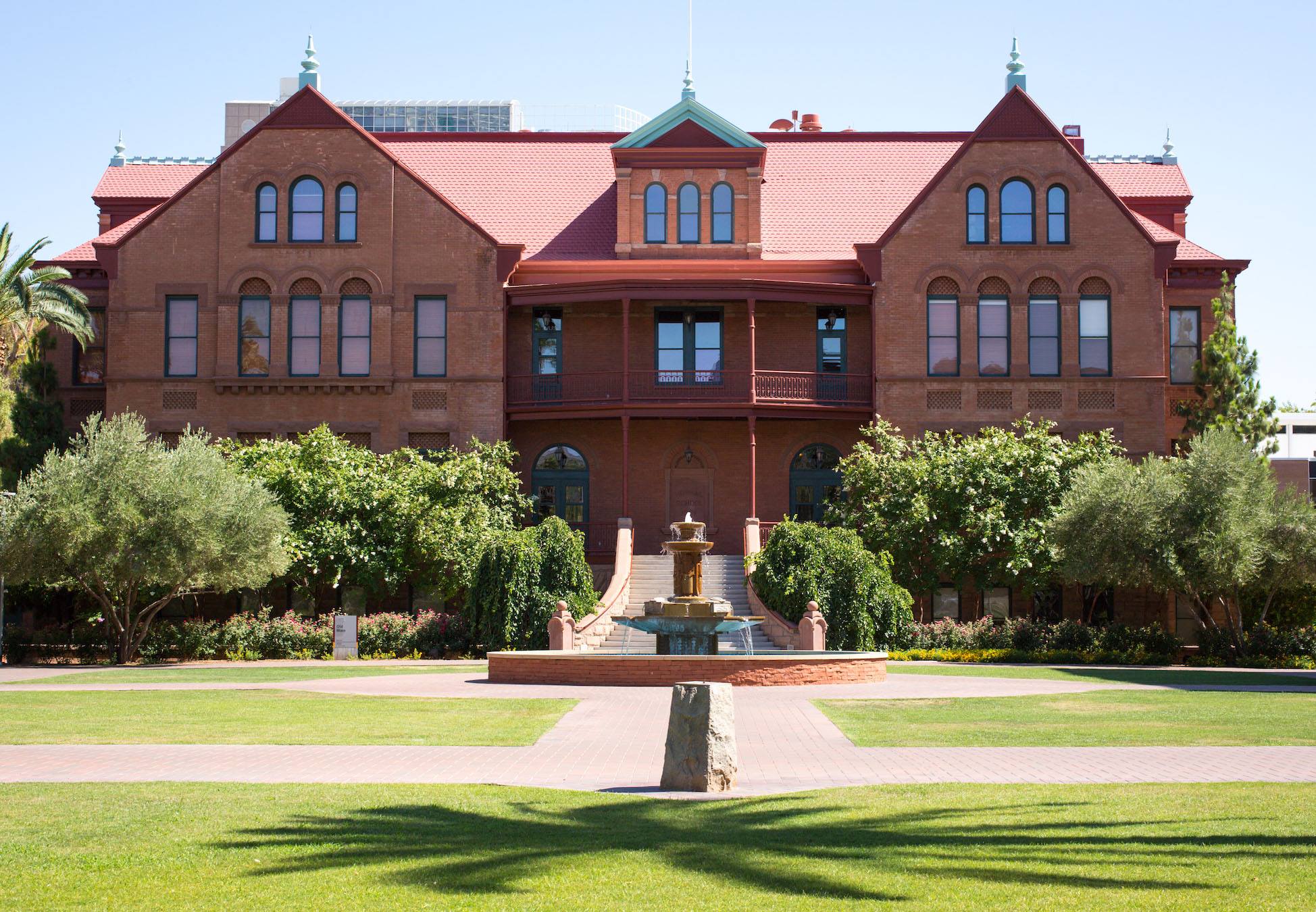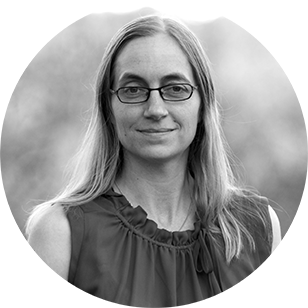The case for conservative universities
Liberals dominate universities. But even they should recognize that America needs a flourishing conservative intellectual culture on university campuses.


A free daily email with the biggest news stories of the day – and the best features from TheWeek.com
You are now subscribed
Your newsletter sign-up was successful
Arizona State University likes to brag that it's #1 in the country for "innovation." That may sound like a buzz phrase, but the Sun Devils really are innovating new ways to expand the ideological horizons of the liberal academy. To wit: the new School of Civic and Economic Thought and Leadership, a transdisciplinary program that aims to increase "ideological diversity" on the Tempe campus.
Yes, it's what you're thinking. It's a school for conservatives.
Conservatives have long been a minority in higher education, but even liberals have recently started suggesting that the imbalance may be egregious enough to call for corrective measures. Arizona's state legislature set aside special funds for a conservative-friendly course of study, with the Charles Koch Foundation adding a sizable contribution. Not everyone has been pleased by this development. Critics want to know: Is this just affirmative action for conservatives? And don't conservative "leadership" programs tend to focus heavily on the work of privileged, dead, white males?
The Week
Escape your echo chamber. Get the facts behind the news, plus analysis from multiple perspectives.

Sign up for The Week's Free Newsletters
From our morning news briefing to a weekly Good News Newsletter, get the best of The Week delivered directly to your inbox.
From our morning news briefing to a weekly Good News Newsletter, get the best of The Week delivered directly to your inbox.
It may be, and they often do. Nevertheless, these conservative-focused academic programs are a good idea, which more universities should replicate. They might save universities. They might even save the nation.
Arizona State's new program doesn't actually describe itself as conservative. That distinguishes it from one of its few forerunners, CU-Boulder's Conservative Thought and Policy Program. Just browsing through the website, though, it's clear enough that the Arizona program is canted towards conservatism. There will probably be a lot of warm words about free markets, constitutional principles, and Western civilization. Many liberals will find this irritating. They would be wise to cooperate nevertheless, for self-interested reasons if not for magnanimous ones.
As our nation's politics become more polarized, academia's marked political slant may become a serious liability. It's remarkable that the professoriate isn't more concerned about this, especially given rising concerns about student debt. Universities are vulnerable, and right-wing populists have noticed. Take a moment to recall the momentum that President Trump managed to generate by denouncing our politically correct media. Now imagine how much mileage the next demagogue might get by running over a class of cosseted eggheads with lifetime appointments to the armchair. Every populist relishes an opportunity to knock elitists and intellectuals off their perches.
Imagine what might happen in future years if a debt crisis were to force hard decisions about budget priorities. How might a Sean Hannity or a Rush Limbaugh capitalize on that opportunity? What would happen if the Republicans were in power when the critical moment came? Liberal academics need to find a way to mend fences with alienated conservatives.
A free daily email with the biggest news stories of the day – and the best features from TheWeek.com
It should go without saying that higher education remains critical to our society. We need an educated citizenry to maintain a healthy culture and a competitive economy. Still, it's understandable that many Americans would feel deep frustration over academia's obvious and pronounced biases. Why, conservatives wonder, should their tax dollars be pumping more than $150 billion per year into the ideological strongholds of their political rivals? The picture gets even worse when we consider the central role universities play in grooming and screening candidates for nearly every elite profession. Terms like "structural inequality" aren't really part of the conservative lexicon, but in many ways that language would be appropriate for explaining conservative angst. It's infuriating to feel that you're compelled to cooperate in myriad ways with a system that seems bent on marginalizing you. When disadvantage seems "baked in" to that extent, people tend to lash out. That's even likelier to happen when so many are steeped in educational debt, and possibly still hunting for long-term employment.
But for all its shortcomings, America's university system still represents an extraordinary achievement, which ideally should be a major source of civic pride. The best way to protect that achievement is by ensuring that Americans across the political spectrum see their views represented within the university system. Affirmative action for conservatives might inspire a snicker, but the investment will be worthwhile if it yields a new crop of conservative intellectuals, capable of persuading their compatriots that universities can serve the common good, not just the left's.
Realistically, conservative schools will sometimes cause offense to the prevailing liberal majority. Progressives tend to be affronted by the conservative approach to civic education, for reasons that extend well beyond the ballot box. Liberals and conservatives simply approach history with different postures. When a conservative sets out to design an undergraduate curriculum, it will likely revolve around traditional texts, historical heroes, and a sweeping account of Western civilization (from Plato to Friedrich Hayek). Conservatives love the idea that they can embrace and extend an intellectual legacy. For liberals, this enthusiasm is irksome, because they often feel that they have expended considerable energy in correcting the moral and historical deficiencies of that same traditional narrative.
It's not that liberals reject Shakespeare or Aristotle wholesale. They may still teach those authors, but they're also very concerned about the evil effects of exclusion and oppression. Why, they ask, are women so underrepresented in the traditional canon? How many of these Great Men of History owned slaves? If we take too much pride in the legacy of privileged Europeans, aren't we in danger of perpetuating their prejudices also?
These concerns aren't absurd. Traditionalists do sometimes use history as a perfume for prejudice, and it's reasonable to wonder what great insights women might have contributed to history, had more of them been in a position to do so. But liberals should worry about the dangers of allowing 21st-century social concerns to dampen their appreciation of real historical excellence. Isn't every blossoming genius privileged in certain respects? Are immoral white men automatically precluded from penetrating insight? If we insist on reducing historical thinkers down to their prejudices and worst actions, we may miss our chance to reflect on larger and more universal themes. A dose of conservative triumphalism might prove a healthy counter-balance to the liberal obsession with exploitation and exclusion.
America also simply needs more conservative intellectuals. Such people bring out the best in conservatism. As Europe has vividly illustrated in recent years, the political right can't really be suppressed permanently, because there will always be people who feel a strong impulse to preserve customs and patterns of life from reckless alteration. Those preservation efforts can take a variety of forms, however. If they are guided by a disciplined study of history and ideas, traditionalists may play a valuable role as custodians of the best elements of our culture. Lacking that, they are far likelier to lapse into a reactionary populism, resentful and fearful of change. The left should want conservative intellectual life to flourish, if only as a means of guiding traditionalists towards the better versions of themselves.
In politically polarized times, it's easy to see public arenas as strategic outposts to be conquered and held for as long as possible. Some liberals clearly view universities as "their" terrain, but that may prove counterproductive. Public resources are much easier to protect when the public values them. Conservative schools may be an irritant to many liberals, but they should consider the bigger picture. Sometimes the best innovators are the ones who look over their shoulders.
Rachel Lu is a writer based in Roseville, Minnesota. Her work has appeared in many publications, including National Review, The American Conservative, America Magazine, and The Federalist. She previously worked as an academic philosopher, and is a Robert Novak Journalism Fellow.
-
 The Olympic timekeepers keeping the Games on track
The Olympic timekeepers keeping the Games on trackUnder the Radar Swiss watchmaking giant Omega has been at the finish line of every Olympic Games for nearly 100 years
-
 Will increasing tensions with Iran boil over into war?
Will increasing tensions with Iran boil over into war?Today’s Big Question President Donald Trump has recently been threatening the country
-
 Corruption: The spy sheikh and the president
Corruption: The spy sheikh and the presidentFeature Trump is at the center of another scandal
-
 The billionaires’ wealth tax: a catastrophe for California?
The billionaires’ wealth tax: a catastrophe for California?Talking Point Peter Thiel and Larry Page preparing to change state residency
-
 Bari Weiss’ ‘60 Minutes’ scandal is about more than one report
Bari Weiss’ ‘60 Minutes’ scandal is about more than one reportIN THE SPOTLIGHT By blocking an approved segment on a controversial prison holding US deportees in El Salvador, the editor-in-chief of CBS News has become the main story
-
 Has Zohran Mamdani shown the Democrats how to win again?
Has Zohran Mamdani shown the Democrats how to win again?Today’s Big Question New York City mayoral election touted as victory for left-wing populists but moderate centrist wins elsewhere present more complex path for Democratic Party
-
 Millions turn out for anti-Trump ‘No Kings’ rallies
Millions turn out for anti-Trump ‘No Kings’ ralliesSpeed Read An estimated 7 million people participated, 2 million more than at the first ‘No Kings’ protest in June
-
 Ghislaine Maxwell: angling for a Trump pardon
Ghislaine Maxwell: angling for a Trump pardonTalking Point Convicted sex trafficker's testimony could shed new light on president's links to Jeffrey Epstein
-
 The last words and final moments of 40 presidents
The last words and final moments of 40 presidentsThe Explainer Some are eloquent quotes worthy of the holders of the highest office in the nation, and others... aren't
-
 The JFK files: the truth at last?
The JFK files: the truth at last?In The Spotlight More than 64,000 previously classified documents relating the 1963 assassination of John F. Kennedy have been released by the Trump administration
-
 'Seriously, not literally': how should the world take Donald Trump?
'Seriously, not literally': how should the world take Donald Trump?Today's big question White House rhetoric and reality look likely to become increasingly blurred
